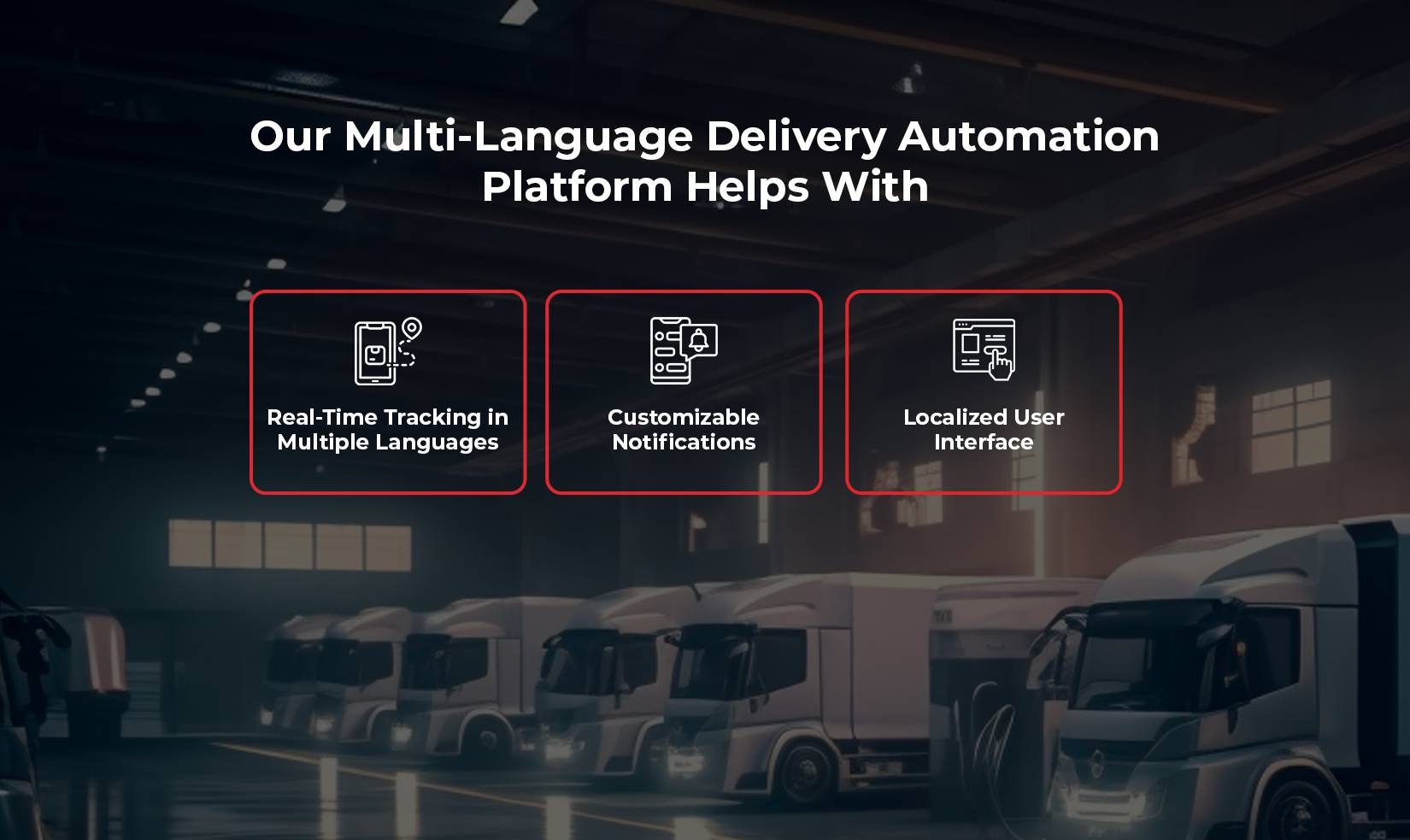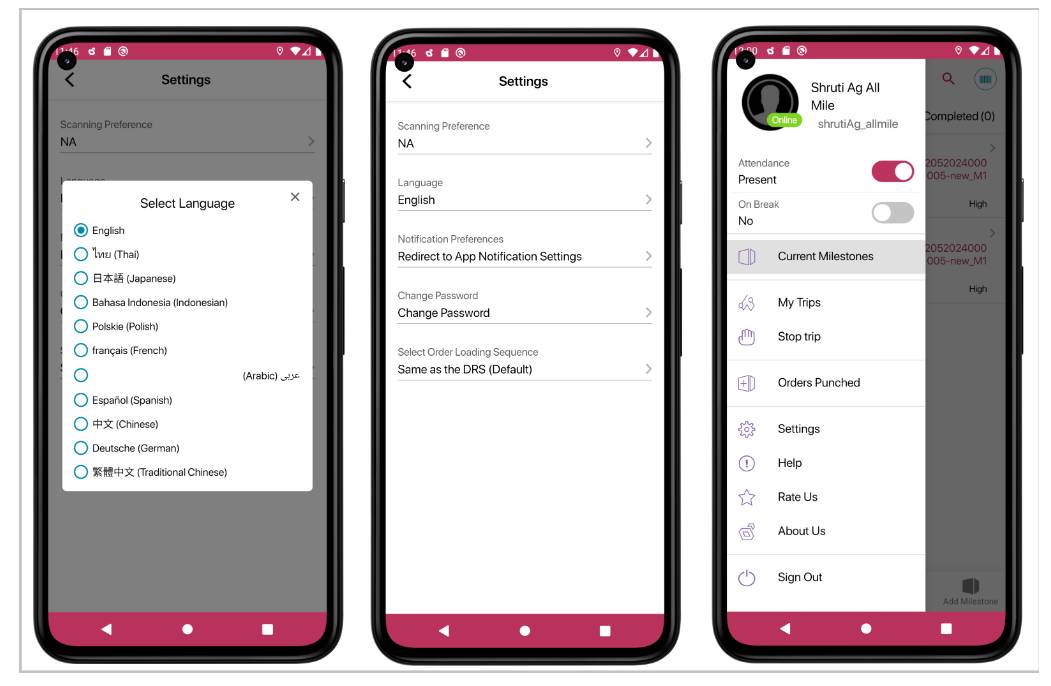In a bustling global marketplace, effective communication is key. But what happens when language becomes a barrier? Imagine a logistics manager in Paris struggling to track deliveries because the delivery automation platform only supports English. Or a delivery driver in Tokyo trying to navigate a route with instructions in Spanish. These scenarios aren’t just frustrating; they can lead to costly delays and errors.
In the world of logistics, time is money. A single miscommunication due to a language barrier can disrupt the entire delivery chain. Packages might get lost, deliveries could be delayed, and customers may be left unsatisfied. In a competitive market, these issues can significantly impact a company’s reputation and bottom line. This is where a delivery automation platform with multi-language support becomes invaluable. By breaking down language barriers, it ensures smooth operations and effective communication across diverse teams and regions.
Quick Read: How AI in Logistics Automation Streamlining Delivery Operations
The Challenge: Language Barriers in Global Logistics
The courier, express, and parcel (CEP) industry thrives on efficiency. But a language barrier can turn a smooth operation into a logistical nightmare. Misunderstandings can cause delays, wrong deliveries, and dissatisfied customers. In a world where speed and accuracy are crucial, these issues are not just inconveniences—they’re potential deal-breakers.
In 2024, it’s reported that 58% of logistics companies have faced challenges due to language barriers. This issue is exacerbated by the increasingly global workforce, with employees from diverse linguistic backgrounds working together. Miscommunication can occur at various points, from dispatch instructions to customer service interactions. Even a simple misunderstanding can lead to significant operational setbacks, such as packages being sent to the wrong locations or delivery schedules being disrupted.
For companies using a delivery automation platform, the problem can be even more pronounced. If the platform doesn’t support multiple languages, non-native speakers may struggle to use it effectively. This can result in inefficient workflows and increased reliance on manual assistance, further slowing down processes.
Moreover, the lack of multi-language support can alienate international clients who prefer to interact in their native language. It can also limit a company’s ability to expand into new markets, where language compatibility is a key factor in customer satisfaction. In a survey conducted in early 2024, 62% of logistics firms stated that offering services in multiple languages improved their customer retention rates.
LogiNext’s Delivery Automation Platform: Tailored for the CEP Industry
LogiNext’s delivery automation platform is designed with a global mindset. It supports over 10 languages, making it easier for businesses to operate seamlessly across borders. Let’s explore some key features that make it a game-changer for the CEP industry:

Real-Time Tracking in Multiple Languages
Imagine tracking a package in real-time, with updates in your preferred language. This feature ensures that no matter where your team is located, they have the information they need, in a language they understand.
Customizable Notifications
Clients can customize notifications in various languages. This means customers receive delivery updates in their native language, enhancing their experience and trust in your service.
Localized User Interface
The platform’s interface is adaptable to different languages and cultures. This includes not just translations but also localization of symbols, dates, and times, making the software intuitive for users worldwide.
Download White Paper: Transformative Power of LogiNext’s Delivery Automation Platform for CEP Industry
Changing Language in the LogiNext Driver App
The LogiNext Driver App offers comprehensive language support, allowing users to switch the app’s language according to their preferences. This feature significantly enhances user experience and operational efficiency.

For users who may not be comfortable with English or the app’s default language, the language support feature provides a way to select a language they are more familiar with. This ensures smooth navigation and effective use of the app. The language supported today includes-
ArabicChinese TraditionalChinese SimplifiedFrenchGermanIndonesia BahasaJapaneseSpanishMalaysia BahasaThaiPolishHungarianEnglish
By offering translations in multiple languages, the app enables users to work more efficiently and independently, reducing the likelihood of errors and the need for additional support. This is particularly valuable for clients who prefer to operate in their native language, making the app more accessible and user-friendly.
How to Change the Language?
– Open the side menu.
– Select the “Settings” option.
– Tap on the “Language” tab.
– Choose your preferred language.
Note- English is the default language.
The Only Delivery Automation Platform With Multi-Lingual Support You Need
In a globalized world, businesses can’t afford to let language barriers slow them down. As companies expand across borders, the need for clear and effective communication becomes paramount. LogiNext’s multi-language delivery automation platform offers a comprehensive solution for the CEP industry, ensuring smooth communication, efficient operations, and satisfied customers.
By supporting over 10 languages, this platform eliminates the hurdles caused by language differences. It empowers logistics teams to work seamlessly, regardless of their location or native language. This directly translates to faster delivery times and a better overall customer experience. Make your smart move by scheduling a demo to embrace our multi-language delivery automation platform by clicking the red button below.
11





















